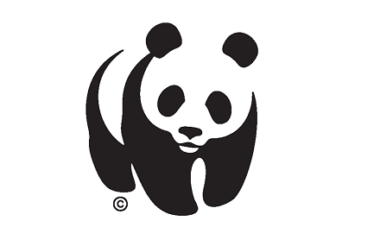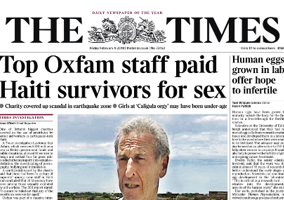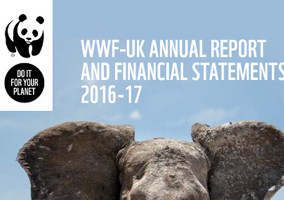WWF has been accused of enabling a number of human rights abuses, in a report by online news platform BuzzFeed.
BuzzFeed yesterday published the findings from its year-long investigation across six countries into the charity, which the online news site says was based on more than 100 interviews and thousands of pages of documents, including confidential memos, internal budgets, and emails discussing weapons purchases.
In a statement, WWF said that while "many of BuzzFeed’s assertions do not match our understanding of events", it has nevertheless commissioned an independent review into the allegations.
Buzzfeed reported that the charity supported anti-poaching units that whipped villagers with belts, attacked them with machetes, beat them unconscious with bamboo sticks, sexually assaulted them, shot and murdered them.
The investigation found the charity’s field staff in Asia and Africa organised anti-poaching missions with “notoriously vicious shock troops”, and signed off a proposal to kill trespassers penned by a park director who presided over the killings of dozens of people.
BuzzFeed said WWF, which is registered in Gland, Switzerland and has field offices in over 40 countries, provided paramilitary forces with salaries, training and supplies — including knives, night vision binoculars, riot gear, and batons — and funded raids on villages.
It said in one African country, the charity embroiled itself in a botched arms deal to buy assault rifles from a brutal army that has paraded the streets with the severed heads of alleged criminals.
The report said the charity “has operated like a global spymaster”, organising “networks of informants motivated by fear and revenge” to provide park officials with intelligence, despite the charity publicly denying working with informants.
Incidents go back to 2006
Incidents described in the BuzzFeed report go as far back as 2006, when it says Shikharam Chaudhary, a farmer in Nepal accused of burying a rhinoceros horn, was found dead in a jail run by WWF’s partners.
It says three park officials, including the chief warden, were arrested and charged with murder, although the charges were dropped by the Nepalese government months later.
The report says the charity later hired one of the accused rangers and handed a second an anti-poaching award, despite him having written a “tell-all memoir” that described using waterboarding as an interrogation technique.
BuzzFeed also says it was told that in 2017, forest rangers at a WWF-funded park in Cameroon tortured an 11-year-old boy in front of his parents.
It says the family’s village submitted a complaint to WWF, but months later, they still hadn’t heard back.
BuzzFeed said that it plans more coverage in the coming days.
Charity to investigate
WWF said it was commissioning an independent review to look into the cases raised in the BuzzFeed investigation and that it would “take swift action” on any breaches of the charity’s safeguarding policies.
A spokesperson said: “At the heart of WWF’s work are places and the people who live in them. Respect for human rights is at the core of our mission.
“We take any allegation seriously and are commissioning an independent review to look into the cases raised in the story. We have asked BuzzFeed to share all evidence it has obtained to support these claims, to help inform and strengthen this review.
“WWF’s work relies on deep community support, engagement and inclusion. We have stringent policies designed to ensure both we and our partners are safeguarding the rights and wellbeing of indigenous people and local communities in the places we work.
“Any breach of these policies is unacceptable to us and, should the review uncover any, we are committed to taking swift action.”
In 2017, WWF rejected reports that it employed “eco-guards” that committed “widespread human rights abuses” when evicting tribes from ancestral lands in the Congo Basin.
|
Related articles












